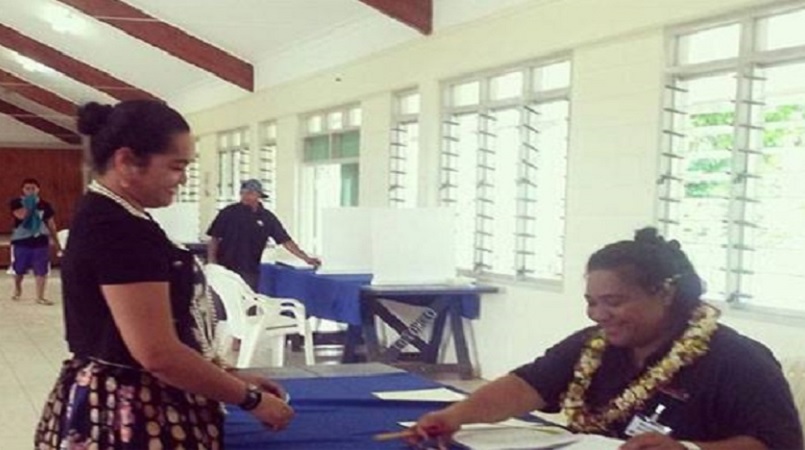
Tongans head to the polls on Thursday and political corruption, as well as the Government's response to the COVID-19 pandemic may well be factors that influence many voters.
But one issue that's dominating pre-election discussions is the country's growing drugs crisis.
"It's taking everyone by surprise. Tonga is not used to those stuff and the changes that come with it, it's just overwhelming for everyone," Samuela Halahala from the Tonga National Youth Congress told Pacific Beat.
The Kingdom's seen a dramatic rise in the use of illicit drugs like cocaine and methamphetamine, and is no longer just a transit point for drug smugglers taking their product from South America to large markets in Australia and New Zealand.
"Most of these youth...maybe they started off with marijuana, but they slowly graduated to doing meth. And I think that's the main issue here in Tonga, meth and cocaine," he said.
"Comparing the past three years, this year has the highest [number] of school dropout. According to the Ministry of Education, one of the main factors there was substance abuse and drugs."
Ofa Gutenbeil Likiliki, the Director of Tonga's Women's Crisis Centre agrees the country is at crisis point.
She said the situation has worsened significantly in the past five years or so -- the same time frame since the Tongan people last cast their votes in the 2017 snap election.
"The drug issue is the big talk right now," she said.
"What the Crisis Center is trying to do, is trying to get decision makers and key stakeholders to understand the strong link between the drug impact on...all forms of violence against women and children. Because right now, there's a disconnect, thinking that they are two separate issues."
"We can't just deal with one as an isolated issue, we have to kind of address all our issues together," she said.
But both Ofa Gutenbeil Likiliki and Samuela Halahala say the drugs crisis can be fixed.
Mr Halahala believes raising awareness and investing in rehabilitation is the key, but he said the new government has take young people seriously.
Ofa Gutenbeil Likiliki would also like women to be taken seriously -- with just two of the MPs in the last parliament female.
"It's pretty obvious that we're still struggling to get more women into parliament, even though we've had some constitutional and legislative reforms," she said.
"That's connected back to our cultural and our traditional and our religious...thinking, that the biggest decision making positions should be reserved for men. And so to change that, it will mean a generational kind of investment".
While too late for this week's election, she suggests that the new government might well have to consider introducing temporary measures like neighbour Samoa.
Corruption is another key issue that many voters want to see a new government tackle.
"I think the major issues is on good governance. That's the major issues I've heard from the communities. They really want leaders to fight against corruption," independent candidate Mapa Taumololo said.
The 33-year-old is one of the youngest in the field of 73.
He has worked previously in the public service but now he wants to try and create change from within government.
"I realized there are lots of loopholes in the system, and also the parliamentary procedures. I haven't heard from the parliamentarians that they have the guts to fix those loopholes".
A government minister and her husband were sent to jail in July for misappropriating money from a vocational education program that had received Australian government funding while in March last year, the former Prime Minister Lord Tu'ivakanō was found guilty over his role in a passports for sale scandal involving Chinese nationals.
Mapa Taumololo believes voters in his constituency have had enough of poor behaviour.
"They were supportive of trying to establish the anti corruption commission to fight against corruption," he said.
But he said they will also be looking ahead to how a new government handles COVID-19, and how it might re-open the Tongan border.
"They're concerned that the Ministry of Health do not have the capacity to cater for...I think more than 15 or 16 cases...we are at risk...because we're not ready, facility wise and capacity wise," he said.
Tonga has largely avoided any COVID-19 cases, although the government did order a 7-day lockdown at the start of the month when a person tested positive while in quarantine, after arriving from New Zealand.
Photo file Caption: Voting in Tonga
